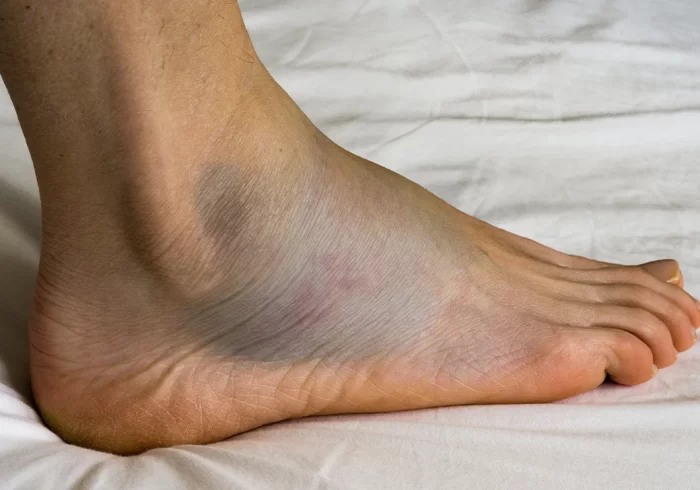Burning mouth syndrome (BMS) is a complex condition in which a burning pain occurs that may involve your tongue, lips, or widespread areas of your whole mouth. It is defined as a localized, uncomfortable, and long-lasting or recurrent burning sensation by a dentist in a dental practice in Philadelphia. This post will explain the causes, what are symptoms, how to diagnose and what are treatments for Burning Mouth Syndrome in detail.
What is Burning Mouth Syndrome?
Burning Mouth Syndrome (BMS) is a condition in which the tongue, lips, or roof of the mouth experience a burning sensation. BMS can come on very suddenly, and last months and even years, making it a difficult condition to treat. Typically seen in middle-aged or older women, but this can affect anyone.
What Causes Burning Mouth Syndrome?
It is quite difficult to ascertain the exact cause of BMS but it is classified as:
Primary (Idiopathic) BMS: This is when the cause cannot be found and is thought to be related to sensory and taste nerves of the central or peripheral nervous system
Secondary BMS: This type is originated by a systemic disease or disorder and may include:
Nutritional deficiencies:
Iron, Zinc, Folate, B vitamins.]
Oral Infections:
Oral thrush
Allergies:
To dental materials, food, or oral care products.
Reflux (GERD):
Esophageal acid irritation may affect the mouth.
Hormonal Changes:
Commonly in post-menopausal women.
Drugs:
Some drugs develop dry mouth or an unusual taste.
Other Mental Factors:
Stress, factors, depression.

Symptoms
The most common symptoms experienced by patients who have this syndrome include:
Dry Mouth:
The sensation of dryness in the mouth even though you are drinking plenty of fluids.
Changed Taste:
Bitter or metallic taste
Pain:
Mild to severe hurt.
Tingling or Numbness:
either tongue or mouth sensations
Excessive Thirst:
Because of dehydration
Diagnosis Burning Mouth Syndrome
BMS is a diagnosis of exclusion. Depending it may examine the prevalent of the next healthcare provider:
Review of Medical History:
To assess for possible underlying mechanisms
Oral exam:
Inspect for signs of any infection or any other oral health difficulty.
Blood tests:
To test for anemia, vitamin and mineral deficiencies, diabetes, thyroid function, and other potential systemic causes.
Allergy Tests:
These are done to determine if the patient is allergic to dental materials or other substances.
Treatment Options
Treatment of BMS varies depending on whether the condition is primary or secondary. Treatment of the underlying condition that is causing secondary BMS usually relieves symptoms. Treatment options include:
Nutritional Supplements:
For any deficiency, they can be given iron, zinc, B vitamins, etc.
Medications:
This could involve over-the-counter pain relievers or medications like tricyclic antidepressants, benzodiazepines, or anticonvulsants.
Saliva Substitutes
For dry mouth, medications to frequent people only motivation to salivate.
Oral rinses:
Mouth rinses that have an anti-microbial effect or in case of pain.
Cognitive Behavioral Therapy (CBT):
For those with BMS caused by psychological factors (such as anxiety or depression)
Modifying Diet:
Staying away from types of things like spicy, acidic beverages or hot foods that may burn the mouth.
Managing Burning Mouth Syndrome
Although BMS is difficult to live with, the following measures can help individuals manage the condition and lead to a better quality of life:
Educate:
Read up on information about the condition and stay in the know about the most updated treatments.
Support groups:
Participating in a support group can get you through some dark times and also offer you some tips on how to get through certain things.
Visit the Dentist:
Keep attending routine dental check-ups to check your oral health and observe any new symptoms.
Living Right:
Eating properly, getting enough exercise, and enough sleep to help deal with stress may aid in relieving symptoms.
Burning Mouth Syndrome is a very complex illness with multiple possible causes and a wide variety of symptoms. Data shows that although it is difficult to diagnose and treat, a thorough understanding of it and consideration of several treatment approaches may lead to successful control. Residents of Philadelphia are lucky to have one of the best healthcare resources in the nation including specialists who can help with BMS.
If you have persistent burning in the mouth, see a healthcare provider for advice and treatment.








